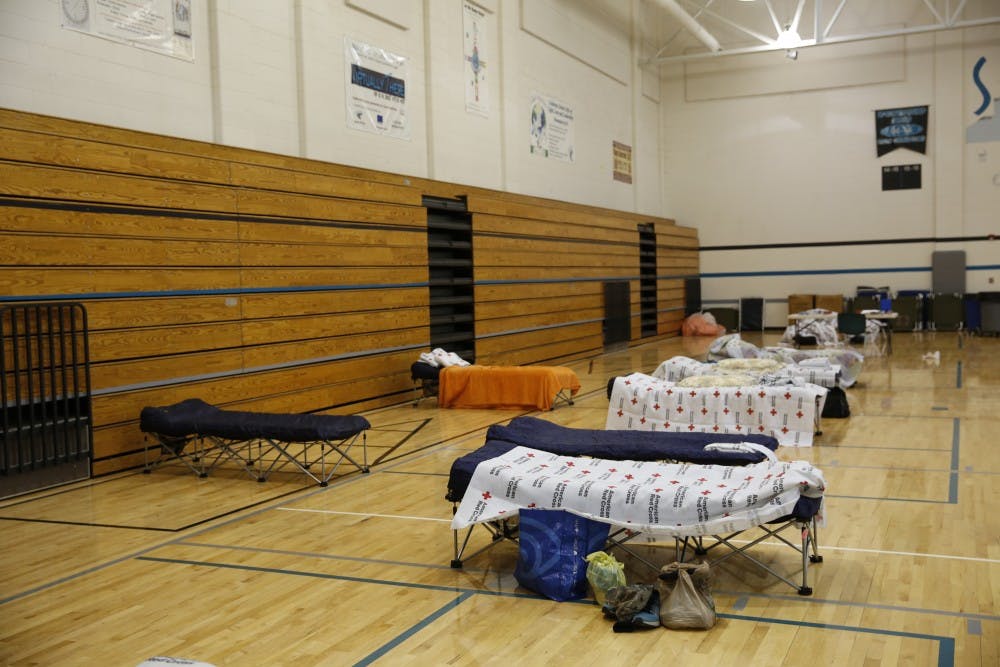Kaylene Luano and Solo Luano braced Alaska’s daunting weather for 15 years before moving to North Carolina last November.
The couple, who hails from the South Pacific, knows hurricanes all too well. The warnings earlier this week brought back childhood memories for Kaylene, about a time when a tropical cyclone ravaged the American Samoa and her family was out of power for weeks.
“Our home is surrounded by trees, and we heard there would be lots of flooding, so we decided to come here for safety reasons,” she said. “We didn’t know where to go. We didn’t have any family close by.”
The Luanos and their five children checked in at the emergency shelter in Smith Middle School on Wednesday, where dozens of families with small children and pets chose to brave Florence, now a tropical storm.
“We’re not expecting to get the catastrophic impact we thought we were going to get,” said Kirby Saunders, Orange County’s emergency manager coordinator, during an evening briefing at the shelter Friday. “We’re not expecting to see what we’re seeing is happening down in the coast on the TV.”
After Saunders spoke, a handful of families packed their belongings and left the shelter.
The county will face 20 to 25 mph winds Saturday and Sunday and one to two inches of rain until Sunday afternoon, when officials plan to close down the shelters unless the forecast changes. The county is providing free transportation to those who wish to leave the shelter before then.
Although about 3,000 customers remain without power, most outages are north of Hillsborough where a tree fell down knocking out a pole, Saunders said.
Chapel Hill Police Chief Chris Blue asked the public to stay out of harm’s way — avoiding fallen electric poles and trees — until Sunday, when Florence’s gusty winds and heavy showers are expected to leave the Triangle.




